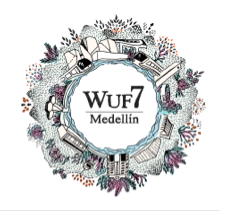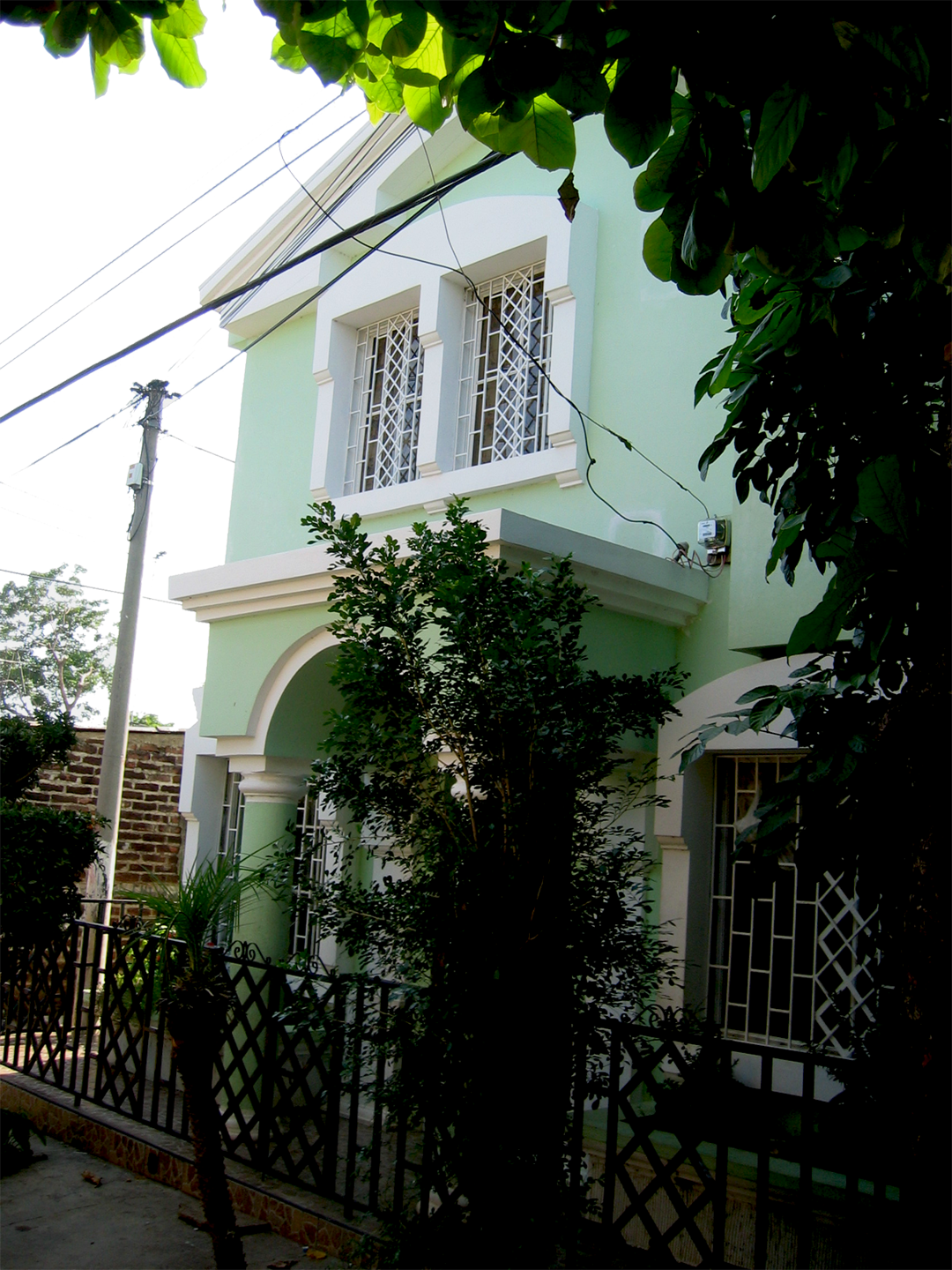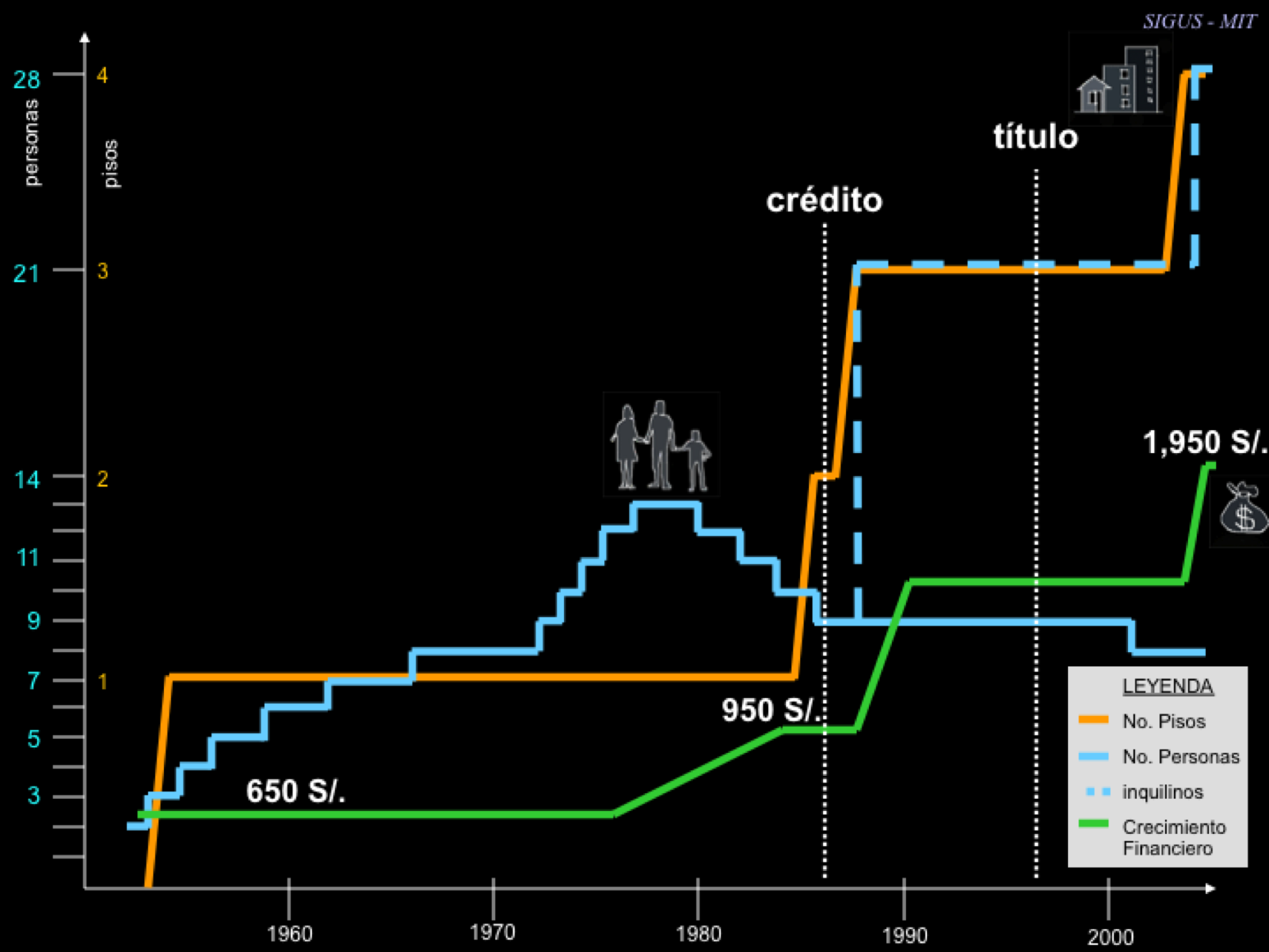UN World Urban Forum - Medellin, Colombia- 5-11 April 2014
 We again participated at the World Urban Forum, the third in a row. The Forums have become a way to keep in touch, updating and sharing our thinking on incremental housing, presenting our latest research, and inviting new members.
We again participated at the World Urban Forum, the third in a row. The Forums have become a way to keep in touch, updating and sharing our thinking on incremental housing, presenting our latest research, and inviting new members.
THE CONSORTIUM ORGANIZED AND HOSTED A SERIES OF SESSIONS AND JOINED OTHERS IN A SPECIAL TRAINING SESSION, AND TESTED THE RECENT EXPERIMENTATION WITH UNMANNED AERIAL VEHICLES AS EMERGING PARTNERS IN DEVELOPMENT.
CAPTURING PROCESS OF INFORMAL HOUSING DEVELOPMENT
|
A how-to-do presentation of a longitudinal survey methodology which captures the underlying drivers and dynamics of inflection points of owner-build informal housing. Understanding process is considered the essence of understanding the informal dynamics for effective supporting policies. The session highlighted the basic principles in a how-to-do format and included examples from various countries. The methodology considers the survey as a ‘celebration of success’ and ‘story-telling’ is a key element. A simple yet powerful diagram offers quick identification of inflection points in the rebuilding success, linking three key indicators: room additions, family growth, and income. The approach has been developed and refined through field tests, with several hundred surveys completed in various countries. The session is offered by the Global University Consortium Exploring Incremental Housing, with secretariat at MIT. Presented at the Habitat UNI Booth by Dr. Reinhard Goethert. |
DRONES AS PARTNERS IN DISASTER RECOVERY AND DEVELOPMENTA test flight over a planned community built in 1969 on the hillside of Medellin to explore flight issues and community information See video on Youtube:
|
Unmanned aerial vehicles (UAVs = Drones) are an emerging tool in assessing damage and monitoring rebuilding after disasters and in development planning. The UAV technology is sufficiently developed, publicly available and affordable. Experimentation with UAVs is increasing, new uses are continually appearing and inevitably UAVs will become widely used, despite the current concerns of governments and regulatory agencies. The presentation is intended as a primer in understanding the world of UAVs, targeting groups with potential interest in their application in recovery and development projects. Topics briefly reviewed include: what is the range of UAVs available, what are competitors to UAV use, what are emerging applications, what are the major hurdles, and what are the basic requirements for groups intending to use UAVs. The session is offered by the MIT SIGUS Group, UAV Club of MIT who are partnered in preparing a basic handbook for NGO use. The long term goal is to develop use of UAVs as partners in disaster recovery and development. A ‘Rapid Assessment Methodology’ using UAVs is being developed particularly for disaster situations. Presented at the Habitat UNI Booth by members of the MIT UAV Club on behalf of the Incremental Housing University Consortium. |
Training Session: LEAVING NO-ONE BEHIND: HOW TO ACCESS LAND, DESIGN SHELTER AND DELIVER FINANCE TO THE POORSee: https://app.box.com/s/9a3zcs8r4c1mgo60574h (The session is also offered as a three-day training session to governments and others)
|
The session taught strategies for making affordable serviced land and starter homes available at the periphery of rapidly growing cities. Participants of the course would understand multiple strategies for making the urbanization process more inclusive and for housing the low-income majority in developing countries. The session enables participants to conceptualize the discussed interventions, which would ideally be implemented complementarily (but could also be implemented individually) and, thereby, make a contribution towards more sustainable, more inclusive and more resilient cities by improving the affordability of serviced land and housing. The session links spatial planning, financing, and value capture for affordable access to land, infrastructure, housing and housing finance. Several issues were addressed: |
For information on WUF 7:



